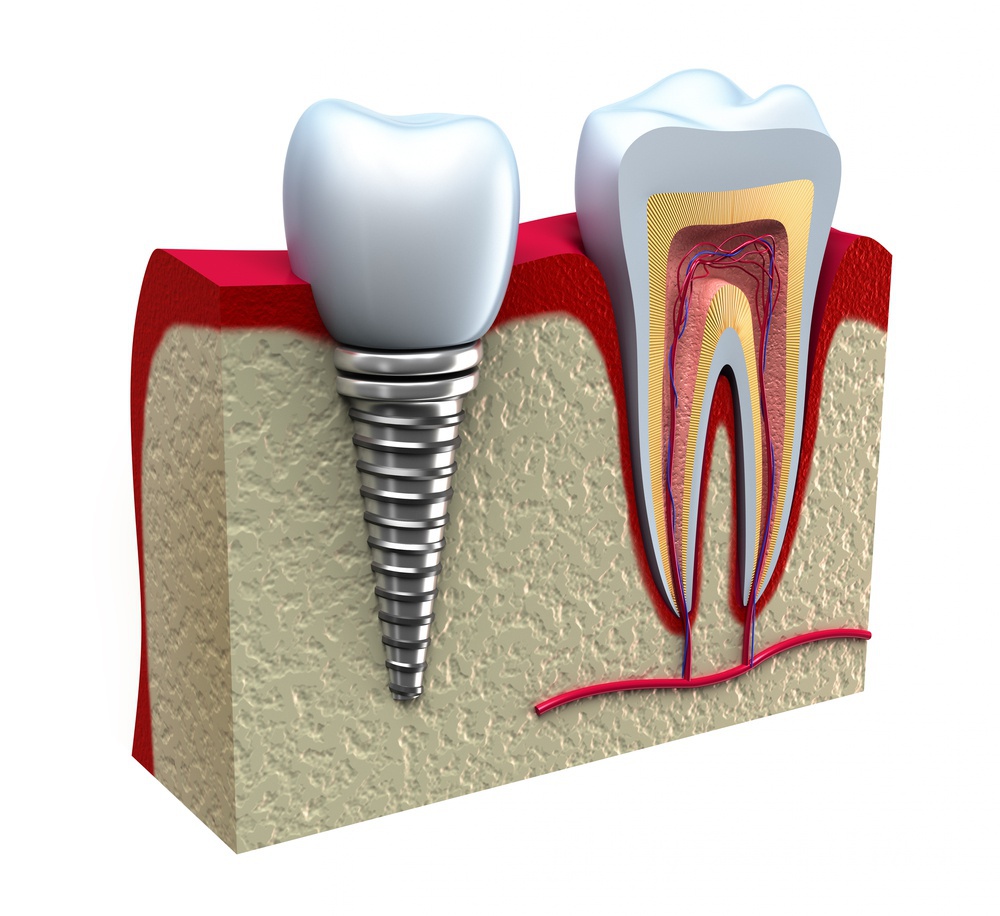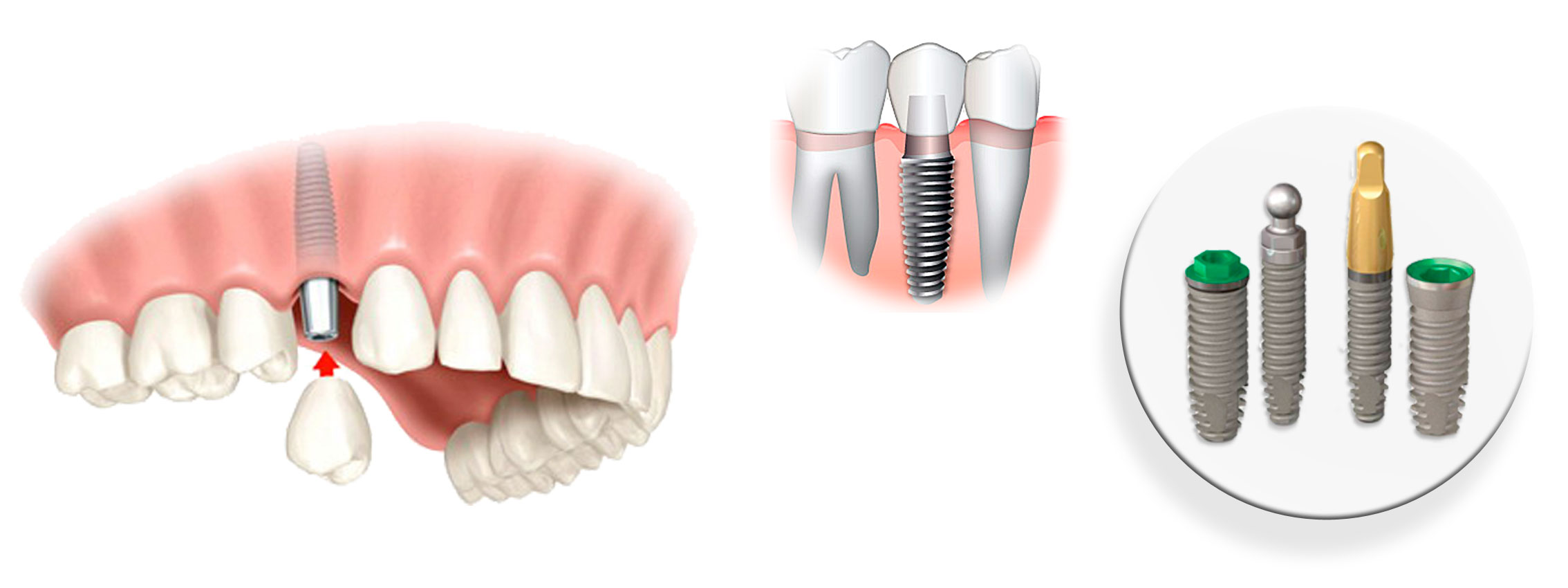Scientists have figured out which drugs you should not drink before implantation of teeth.

If you have ever installed dental implants, but they have not taken root, you may be drinking heartburn pills too often. This is the conclusion reached by a team of scientists from McGill University . After analyzing the data of more than 700 patients, they found that antacids and beta-blockers affect the body's acceptance of dental implants.
Implantation - a method of implanting an artificial root on the site of a lost tooth - enjoys a certain popularity. Implants can be installed as instead of one missing tooth, or they can be replaced by a whole row. In terms of their functionality, dentures, which are installed in an implant, are no different from natural teeth.
The implant consists of several parts: the implant is a titanium rod that replaces the tooth root. There is an abutment on it, the upper part of the structure, on which the crown is subsequently fixed. As a rule, screw implants are used to restore the front teeth, and lamellar ones come to replace the roots of the chewing teeth. In order to successfully take root, in the manufacture of the implant using alloys of titanium, gold and nickel. Usually these materials do not cause a negative immune response.
')

The success of implantation very often depends not only on the professionalism of the doctor, but also on how the dental bone, into which the core is implanted, will be perceived by an alien object. Some medications can indirectly affect how bone cells regenerate, multiply and die. They can influence how the implant survives.
The University’s research team analyzed data on the implantation of dental implants in more than 700 patients operated on at the Maxillofacial Surgery Clinic in New Brunswick from 2007 to 2015. Then they confirmed the results obtained from the patients by conducting experiments on rats.

During the study of the positive effects of beta-blockers, data on the condition of 1,499 dental implants were studied in 728 patients who visited the clinic from 2007 to 2013. 142 people, which accounted for 327 implants, were hypertensive and took antihypertensive drugs. The frequency of rejection in them was only 0.6%. Among 586 clinic patients who did not take beta-blockers, implant rejection occurred in 4.1% of cases.
It has already been established that antihypertensive drugs have a beneficial effect on bone formation. “We thought beta blockers could reduce the risk of dental implant failure.” However, we did not expect that there would be such a clear difference in the frequency of failures between people who accepted and those who did not accept beta-blockers, ”notes Faleh Tamimi, a professor at the School of Medicine at McGill University. Nevertheless, it is necessary to conduct a number of studies among a larger number of patients in order to confirm this phenomenon.
Then conducted experiments on rats. 24 animals with a prosthesis of the left tibia and damage in the right were divided into two equal groups. Propranolol, a drug used to treat cardiovascular diseases, was injected subcutaneously into animals in the first group for two weeks. The second group was injected with normal saline. According to the results of computed tomography, propranolol caused accelerated bone healing and implant engraftment.
Among the drugs that prevent the absorption of dental implants were remedies for heartburn. These findings, scientists have made on the basis of data analysis from 799 patients. Only 58 of them took antacids. Their failure rate was 6.8%, while the rest - 3.2%.
On rats conducted an experiment similar to the previous test with beta-blockers. The rats were divided into two groups of 12 each. Each had animals with defects in the right tibia and an implant in the left. The first group was treated with omeprazole for two weeks, a medicine used to treat stomach ulcers. The results were predictable - systematic introduction of omeprazole in the body impairs bone healing and prevents implant absorption.
More than 20 million Americans, about one in fourteen, are taking heartburn medication. Antacid drugs are the third most frequently prescribed drugs in the world, especially for older people who take them occasionally or regularly.
Previously, scientists have already shown that heartburn medications reduce calcium absorption in bones and generally increase the risk of fractures. That is why a group from McGill University turned to the study of the effect of these drugs on the integration of implants and bone healing after surgery. Further work will be required to determine the appropriate dosage and period of time before surgery, when people should not take these medicines.
The research team believes that the results of tests and experiments may be important for orthopedic interventions, since the process of bone healing throughout the body is governed by approximately the same mechanisms. The use of beta-blockers or antacid drugs, presumably, will equally affect both engraftment of dental implants and hip prostheses. Working with implants in rats has shown that this is indeed the case, but more research will be conducted to confirm this.
Source: https://habr.com/ru/post/398685/
All Articles